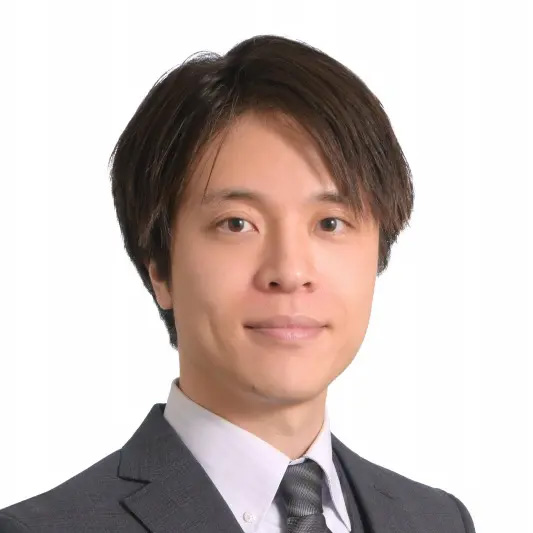International Schools in Japan - Their Major Advantages
International schools range from preschools for infants to elementary, junior high, and high schools, and these days, even people who thought international schools were irrelevant are starting to take notice of them.
In Japan, awareness of globalization is gradually increasing. As if in inverse proportion to the decline in the number of children, the cost of education per child has increased significantly, and the number of students attending international preschools (daycares, nursery schools, and kindergartens that provide care in English) with high childcare / tuition fees is increasing every year.
There are probably about 800 international preschools in Japan, but the number of international schools drops drastically from elementary school onward.
In the first part of this article, I will touch on the negative impressions and concerns that parents may have about their children attending international schools, and in the second part, I will explain the various systems, structures, and realities that will help parents to resolve these concerns one by one.
Rapidly Growing International School Industry in Japan
As mentioned earlier, education costs per child in Japan have increased significantly, as if in inverse proportion to the decline in the number of children. The number of international preschoolers with high daycare and tuition fees is increasing every year.
Reference source: 子供の減少と相反する 一人あたり教育費の増加
増えるインターナショナルスクール、専門家に聞く(日本経済新聞)
While most international preschools and kindergartens in Japan are still in their infancy, international schools themselves have a long history. The oldest international school in Japan and the oldest in Asia is Saint Maur International School in Naka-ku, Yokohama, Kanagawa Prefecture, founded in 1872.
In recent years, international schools have been opening one after another.
Reference source: インターナショナルスクール、日本で開校ラッシュのなぜ アジアからの留学先としても注目
(新しい教育のカタチを考える|朝日新聞EduA)
The number of international schools worldwide has increased from 6,001 in 2010 to 12,300 in 2021, according to ISC Research, a British organization that provides statistics and research on international schools.
Reference source: 【最新版】2021年 世界のインターナショナルスクール校数と生徒数 | eduJUMP! 編集部
Few International Schools After Elementary School
The number of international elementary schools in Japan is extremely small, a vast difference from the number of international preschools and kindergartens. In terms of maintaining and improving the skills developed in preschool, parents would naturally consider international schools from elementary school onward, but why are there so few to choose from?
Real and Imagined Barriers
Let's see why there are so few international elementary, middle, and high schools in Japan.
*1 Article 1 School: The ten types of schools (elementary schools, junior high schools, high schools, secondary education schools, universities, technical colleges, schools for the blind, schools for the deaf, schools for the handicapped, and kindergartens) are designated as Article 1 by the School Education Act. Most international schools are Non-Article 1 Schools.
*2 Private School Subsidy: Subsidies provided by the national and local governments to private school founders and students. Private schools operated by incorporated educational institutions (Gakko Hojin) are eligible, but private schools operated by limited companies are not.
Thus, there are many factors on both the parents' and the school's side that make them hesitant about international schools in elementary, middle, and high schools.
Some of these problems are real, while others are just imagined, but we need to look at each one carefully because it’s not easy for parents to make choices that will affect their children's future.
In this article, I’d like to address these issues one by one.
A Reliable System, and Facts to Dispel Worries
If the need arises, your child can transfer to a Japanese school.
If your child is in a public elementary or junior high school, your child can transfer and advance in another public school without any problems. Since both elementary and junior high schools are compulsory education, it is extremely unlikely that your child will be refused acceptance to transfer to a different school. However, from the high school entrance examinations, there is a possibility that the points they have scored will be subject to evaluation, so be sure to consider the timing of your child's school transfer after understanding the period during which your child will be subject to evaluation.
However, there are also a variety of examination formats that do not include points on their school evaluation, and an increasing number of schools have established returnee quotas for students who have attended international schools in Japan as well. There are schools that will give high marks to students who have attended international schools, so it may be advantageous for students to have attended an international school.
In addition, there may be cases where students transfer to overseas schools or enter a school overseas, in which case, having attended an international school in Japan may be an advantage. If your child is transferring from an IB school to an IB school, it will be easier for your child to catch up with the classes at a school in an English-speaking country, and since the IB is a universal program, the school will be more likely to accept the child and it will be easier for the child to integrate into the school curriculum.
Gather information on international schools.
The information provided on an international school's website may not always be sufficient. And although most schools have only English websites, there are some websites that provide information in multiple languages.
Below are websites of major international schools (integrated schools or schools that are planning to open integrated schools) that have Japanese-language websites.
It is also a good idea to attend information sessions and school tours, and find opportunities to talk with current students and graduates of the school themselves or their parents. You may have the opportunity to speak with such people at information sessions, or you may find them on blogs or social networking sites and contact them directly.
Violation of School Attendance Obligations (for Japanese Nationals)
International schools are generally Non-Article 1 Schools, and therefore, in the case of a child of Japanese nationality, it is technically a violation of the parent's obligation to send the child to school (but not in the case of a foreign national). According to the MEXT, there have been no cases of criminal charges since 1956. The parents are not abandoning their efforts to provide their children with an education, but rather, they have chosen to send their children to an international school as a result of their desire for a better educational environment.
In Japan, the national government (MEXT) is leading the promotion of IB schools and has created the MEXT consortium for promotion of IB education in Japan. Since the IB has been introduced mainly in international schools, this policy is like an endorsement to international schools. But on the other hand, there is a big contradiction in the fact that the current situation, in which there is a technical violation of the school attendance obligations, has not changed.
It is assumed that the problem of violating the school attendance requirements was part of a social situation in the immediate postwar period, when the right to education was not fully guaranteed, and therefore did not take into account the diverse realities of educating of children, and we hope that this discrepancy will be corrected in the near future.
Qualified to Take Entrance Exams for Universities in Japan and Abroad
Not all international schools, but most, will qualify students to take entrance exams for universities in Japan upon graduation, as well as for universities abroad.
First, let's review the standards set forth by the MEXT regarding eligibility for university entrance examinations in Japan.
Admissions Eligibility in Japanese Universities
Eligibility for admission to Japan's universities is granted to those who have not graduated a Japanese high school in Japan or the equivalent, if any of the below cases apply. It is also granted when none applies but the prospective admittee has passed a high school equivalency exam (高卒認定試験).
1. The prospective admittee has spent 12 years or more in primary and secondary education in another country and...
- he/she has completed 12 years of school courses overseas; or
- he/she is over the age of 18 plus has passed an equivalency exam for 12 years of school courses overseas; or
- he/she has completed the courses at an officially designated overseas Japanese school; or
- he/she has completed the courses for 12 years at an international school accredited by an international accreditation body (WASC, ACSI or CIS).2. The prospective admittee has spent less than 12 years in primary and secondary education in another country and...
- he/she has completed courses at an overseas school comparable to a high school plus completed the required university preparatory courses; or
- he/she has completed a high school equivalency exam overseas plus completed the required university preparatory courses; or
- he/she has completed designated courses at an overseas school comparable to a high school.3. Regardless of number of years in primary and secondary education...
- he/she has obtained the International Baccalaureate (IB), the Abitur, the Baccalauréat, or the General Certificate of Education Advanced Level; or
- he/she has passed an university’s individual qualification screening plus is over the age of 18.*"Completed 12 years of courses" means "completed the 12th year of a legitimate school education."
*"College preparatory coursework" means college preparatory coursework officially designated by the Ministry of Education, Culture, Sports, Science and Technology.Reference source: Entrance Qualification for Universities: MEXT
Of course, those who have graduated from high school in Japan (Article 1 School) are also eligible for university admission.
Many international schools meet the following criteria: "he/she has completed the courses for 12 years at an international school accredited by an international accreditation body(WASC, ACSI or CIS)." (from 1 above), or "he/she has obtained the International Baccalaureate (IB)" (from 3 above).
There are currently 68 high schools (plus 8 candidate schools) in Japan that are IBDP accredited schools, which qualify for university admission, including 33 so-called authorized international schools (schools that offer the IBDP mainly in English, not Japanese) as of March 31, 2024.
Reference source: 認定校・候補校 | 文部科学省IB教育推進コンソーシアム
The international evaluation organizations, and the schools accredited by each are as follows (from 1 above):
WASC: 22 schools (as of May 24, 2024)
- WASC stands for Western Association of Schools and Colleges.
- An American Accrediting Association
- Evaluates and accredits schools comprehensively in terms of facilities, operations, faculty, curriculum, etc.
- Mission: WASC advances and validates quality ongoing school improvement by supporting its private and public elementary, secondary, and post-secondary member institutions to engage in a rigorous and relevant self-evaluation and peer review process that focuses on student learning.
Reference source: WASC - Accrediting Commission for Schools
CIS: 29 schools (as of June, 2024)
- CIS stands for Council of International Schools.
- It is a membership organization originating in the UK that provides educational accreditation.
- It comprehensively evaluates schools, including their facilities, operations, teachers, and curriculum.
- Mission: CIS is committed to the development of children world-wide through high quality international education: connecting ideas, cultures, and educators from every corner of the world.
Reference source: Council of International Schools | International Education Organisation
ACSI: 3 schools (as of June, 2024)
- ACSI stands for Association of Christian Schools International
- An American Accrediting Association
- Mission: ACSI exists to strengthen Christian schools and equip Christian educators worldwide as they prepare students academically and inspire them to become devoted followers of Jesus Christ.
Reference source: Association of Christian Schools International ACSI
NEASC: 4 schools (As of June, 2024)
- NEASC stands for New England Association of Schools and Colleges
- An American Accrediting Association
- Mission: NEASC partners with schools to assess, support, and promote high quality education for all students through accreditation, professional assistance, and pursuit of best practices.
Reference source: NEASC - New England Association of Schools and Colleges
It may be comforting to know that international schools are not “out of the mainstream” options, as the system allows students to gain admission to universities even if they are, technically, in violation of the school attendance requirement. Conversely, students from schools that are not accredited, or that do not seek accreditation from organizations such as IB, WASC, CIS, ACSI, or NEASC, may have a difficult road ahead of them when considering their subsequent career paths.
In the society of the future, international schools will be an option to be considered on an equal footing with the old Japanese school system.
In fact, does choosing an international school narrow or broaden your future career options? Let's take a closer look in the next section.
Expanded Pathways to National and International Universities
Most international schools are accredited by IB, WASC, CIS, ACSI, or NEASC, which means that graduates will be qualified to take university entrance exams in Japan, but they will likewise be qualified to take entrance exams for universities abroad (not all, please check the website of each university).
As mentioned above, if you obtain the IB DP qualification, you will be qualified to apply to universities in Japan and also to universities overseas. IB qualifications are highly regarded by universities, and many major overseas universities have higher acceptance rates for IB students than those for general applicants.
Below is an overview of the IB (International Baccalaureate).
IB (International Baccalaureate)
- IB stands for International Baccalaureate.
- It is divided into four programs: PYP (ages 3-11), MYP (ages 11-16), DP (ages 15-18), and CP (ages 15-18). PYP, MYP, and DP are the mainstream programs, while CP focuses on career and vocational education.
- It began as an attempt to create a unified worldwide examination to unify university entrance qualifications that differ from country to country.
- Mission: To develop inquiring, knowledgeable and caring young people who help to create a better and more peaceful world through inter-cultural understanding and respect.
- Holistic approach to education: IB learners are taught to be internationally minded and to strive for ten main values.
- When graduating from high school, the qualifications needed to pass the IB Diploma Program will allow students to qualify for university entrance exams in any country. The IB DP is accepted by about 2,500 universities around the world.
For example: In Japan, it is usually necessary to graduate from an Article 1 high school and take a nationally standardized test. In the US, scores from nationally standardized tests (SATs etc.) are also required. But the IBDP eliminates the need to take these tests. - The number of IB accredited schools is increasing every year worldwide, and the number of universities in Japan that offer entrance examinations using the final IBDP score (IB entrance examination) is also increasing every year.
- MEXT Consortium for Promotion of IB Education in Japan has been established to conduct research, comparison, information disclosure, and support for schools and local governments in order to promote IB in Japan.
- Even if it is not an IB entrance examination, being an IB student can lead to high evaluation in AO and recommendation examinations.
- Some credits may already be acquired at the time of admission to the university, as they may be convertible to university credits.
Reference source: International education - International Baccalaureate
You might have heard that the DP, the final two years of the IB program, is very difficult, but that does not mean that students cannot obtain a DP qualification; in fact, 80% of students passed the DP in the May 2023 exam. I believe that students who have been studying in the IB for a long time will be well prepared for the IB DP.
*Our school, CGK, aims to be accredited for all PYP, MYP and DP.
English Proficiency and the Nationality of Parents
Please check each school's website for policies regarding English proficiency and nationality that parents need to be. Many international schools use only English on their websites, and all communications from the school are also in English. It seems that many schools have an English proficiency requirement for parents, and one of the criteria is that they expect parents to be able to understand communications from the school in English.
For those who are not good at English, there are also schools where it is OK if the parents can just read English, that is, if they can understand English sentences using a dictionary, etc. Incidentally, if you limit the number of international schools to those that accept Japanese communication, the number of target international schools will decrease sharply.
September Enrollment or April Enrollment?
Although the timing to start school differs around the world, September is the most common entrance month in Europe and the United States, and many international schools in Japan also follow this practice. (Actually, it's August, when summer break ends.)
If an international school enrolls students in September, the timing to move from the Japanese preschools / kindergartens, or to enter a Japanese university, will cause students to have to leave the school (drop out) or take a gap year (gap term) after graduating from the school or entering a Japanese university, which may or may not be considered an advantage.
There are a certain number of international schools that use April enrollment, and CGK International School is one of them.
Faculty Skills
Whether the school's philosophy, policies, and attitude are appealing, its important to ask if there is an environment of cooperation and respect between the staff and the management / administration? Since they are all in a position to support the students' growth, cooperation and respect are vital. Simply by improving in this regard, a school can naturally attract good teachers. If a school takes good care of these important things, it is easier to attract good faculty and staff to an international school than to a regular school, because the number of students in an international school is smaller.
In particular, in IB accredited schools, it is easier to attract and keep good faculty and staff because of the following advantages.
- What the IB (other than DP) presents is a framework, not detailed instructional content. Since its not a traditional style of completing a prepared curriculum, teachers who have experienced the IB are constantly improving their skills.
- The faculty and staff are highly motivated to educate students because they work in support of the IB's philosophy and policies.
- Teachers regularly take workshops to improve their skills and understanding.
The Remaining Disadvantages
We have to admit the fact that tuition is high at international schools. Public elementary, junior high, and high schools are free, and private elementary, junior high, and high schools are also very inexpensive compared to international schools because they are subsidized by private school subsidies if the school is an Article 1 school operated by incorporated educational institutions (Gakko Hojin).
Another disadvantage, which is not necessarily a disadvantage, is that if students do not have sufficient English proficiency at the time of enrollment, they may be denied admission, or even if they are admitted, they may face difficulties after enrollment. In order to maintain a high quality of instruction, some schools will not accept students with low English proficiency, and many schools offer EAL (English as an Additional Language) support for students who are not proficient in English. Before enrolling in an international school, make sure your child has as good an English level as possible, and check carefully what kind of support the school offers.
Other Benefits
As a non-Article 1 school, we are not bound by the Japanese curriculum guidelines (学習指導要領) and are free to introduce foreign curricula. Incidentally, CGK International School is a non-Article 1 school, so it is not restricted in any way. Although we will have to comply with certain requirements as an IB school and when we receive accreditation from CIS and WASC, we are still able to pursue a better environment and program for our students compared to the restrictions that an Article 1 school is subject to.
CGK International School in Yokohama, Japan
Our CGK International School is the only integrated international school in Yokohama, Japan with April enrollment, which opened a preschool/kindergarten in 2016 and an elementary school in 2023, and will open a middle school in 2025 and a high school in 2028.
Study abroad for one year
Gap years are common in many countries. Taking a gap year means studying abroad before, during, or after graduation from university (before finding employment). When I lived and traveled abroad, I met many people who had taken a gap year to study abroad, and I thought it was a wonderful system.
Time spent outside and experiencing society is important to consider what you want to learn and what you want to do for a living.
With the expectation that students will have such special experiences at a young age, develop diverse viewpoints and values, cultivate independence, and act independently with purpose and goals during their subsequent school years, CGK students will study abroad for a year starting in the summer of Grade 7.
Summary
I have written at length to make it easier for those who have previously thought that international schools were irrelevant to now consider them more seriously. I hope that this article will be of some help to you and that it will help you to make the best choices possible for your child's future.
Author Profile
-

-
Minoru Kai - School Founder, CGK International School (Japan)

Born in 1984, father to two children.
After residence and stay in Australia, Canada and America, worked at an advertising agency concurrently in overseas exhibition work and domestic advertising work.
He also founded CGK International School (Yokohama) from scratch and provides management consulting for international schools.





















